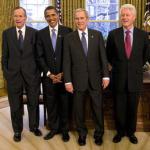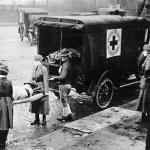"Now is the winter of our discontent," begins Richard III, one of Shakespeare's most famous plays.
health policy
Two independent groups have arrived at the conclusion that the COVID-19 lockdown is doing more harm than good. Specifically, the lockdown is taking more life than it's saving. How is it possible to make a determination like that?
The mayor of Los Angeles has said that his city will "never be completely open until we have a cure" for the coronavirus.
The novel coronavirus, officially dubbed SARS-CoV-2, and the disease it causes (COVID-19) have continued to surprise all of us. And the surprises have been uniformly negative.
Despite COVID-19 being a public health crisis, we have politicized our understanding of the disease.
This article was originally published at Geopolitical Futures. The original is here.
Like democracy, everybody wants to be on the side of science.
I'm continually struck by what our species is capable of.
Should politicians make major, society-altering decisions based on polls? Framed that way, most people would probably answer "no." A politician's job is to be a leader, and sticking one's finger in the wind is not anyone's idea of leadership.
For those Americans who become infected with the novel coronavirus, symptoms include loss of smell, coughing, and high fever. For everyone else, the chief symptom is stupidity.












